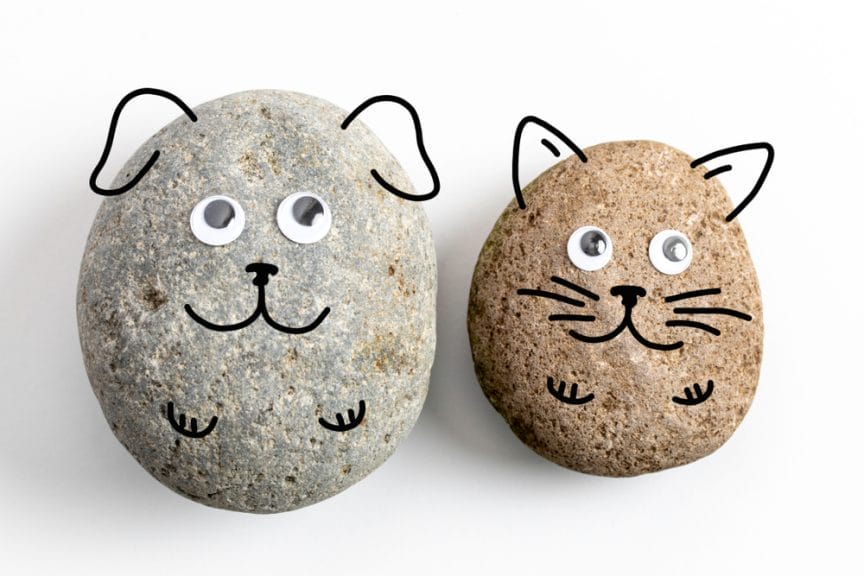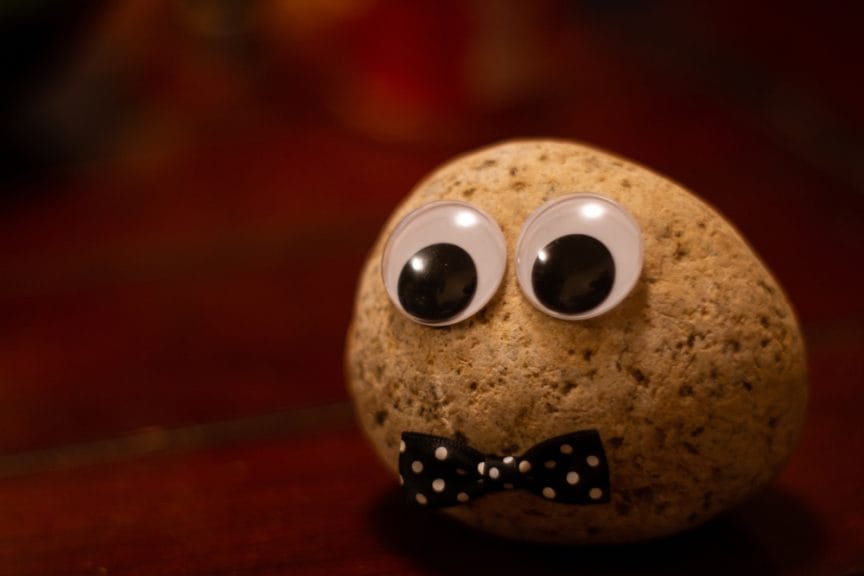With South Koreans being one of the most overworked populations, many are turning to an unconventional method of blowing off steam; pet rocks!
Many young South Koreans are taking part in a growing trend to battle burnout. Pet rocks were originally novelty gifts in America, and were most popular in the 1970s. However, in South Korea they’re now being revived to help with chronic stress and loneliness.
The popularity of pet rocks in Asia shows how much they have changed since their joke origins. Today, they are viewed as a way to relieve exhaustion, as well as symbolizing peace, prosperity, and fortune. The hobby of collecting the stones made a huge comeback after the COVID-19 pandemic when millions of people struggled with loneliness, isolation, and depression.

The allure of the rocks is based on the concept of ‘suseok’, or ‘scholar’s rock’. The idea originally symbolized prosperity and refinement. The concept was popularized during the Joseon Dynasty, beginning in the late 1300s. The age-old practice regained popularity when South Korea experienced a huge economic boom in the late 20th century. Today, suseok signifies wealth and comfort during the intense modern challenges that many experience today.
Pet rocks and stones are much more affordable in comparison to their traditional suseok counterparts. Pet rocks usually cost about 6,000 won, or $6. Many millennials use them to cope with stress and chaos in the workplace. One pet rock owner, Koo Ah-Young, named her pet rock “Bang-bang-i.” She claims she talks to the rock about her everyday struggles and even brings it with her during walks and gym sessions.
Another owner, 29-year-old Lim, said of her pet stone, “I purchased a pet stone for the first time during the pandemic. I just wanted to have something by my side while I was working remotely. It provided me a sense of companionship.” Lim added, “I would occasionally pick up my stone from its bed and pat it. I sometimes just talked to it as if I was talking to myself.”
It is common for those with pet rocks to give them personalities and unique traits, which are often shared on social media. People will post pictures of their pet rocks, give them nicknames, and even buy them clothes. The trend has become popular on TikTok, and many users will share videos of them introducing their pet stones.
Why are loneliness and stress on the rise in South Korea?
The resurgence of the pet rocks and stones has sparked a bigger conversation about mental health and burnout in South Korean culture. Mental health struggles and loneliness are not new to South Korea, with financial stressors and workplace pressure contributing greatly to the issue. Single-person households are on the rise, and the presence of an ‘overwork culture’ is stronger than ever.
South Korea also has one of the worst work-life balances. Workers have a very limited ability to separate their work and leisure time due to very long working hours. Additionally, the country is ranked as having the fourth most overworked population in the world, followed by Russia and Greece. These issues present an urgent need to bring about positive change in South Korean society.
Pet rocks are an unexpected but surprisingly helpful tool. Many who own them claim to feel a sense of calm and tranquility when conversing or playing with their rocks. They also enjoy using them for creative expression. The sensation of the stones’ smooth surfaces, as well as the action of painting or decorating them, can induce a state similar to mediation. Overall, the collection of pet stones displays a switch from the classic stone-collecting hobby to a modern approach for fighting loneliness, depression, and other factors that can negatively affect one’s mental and physical health.














